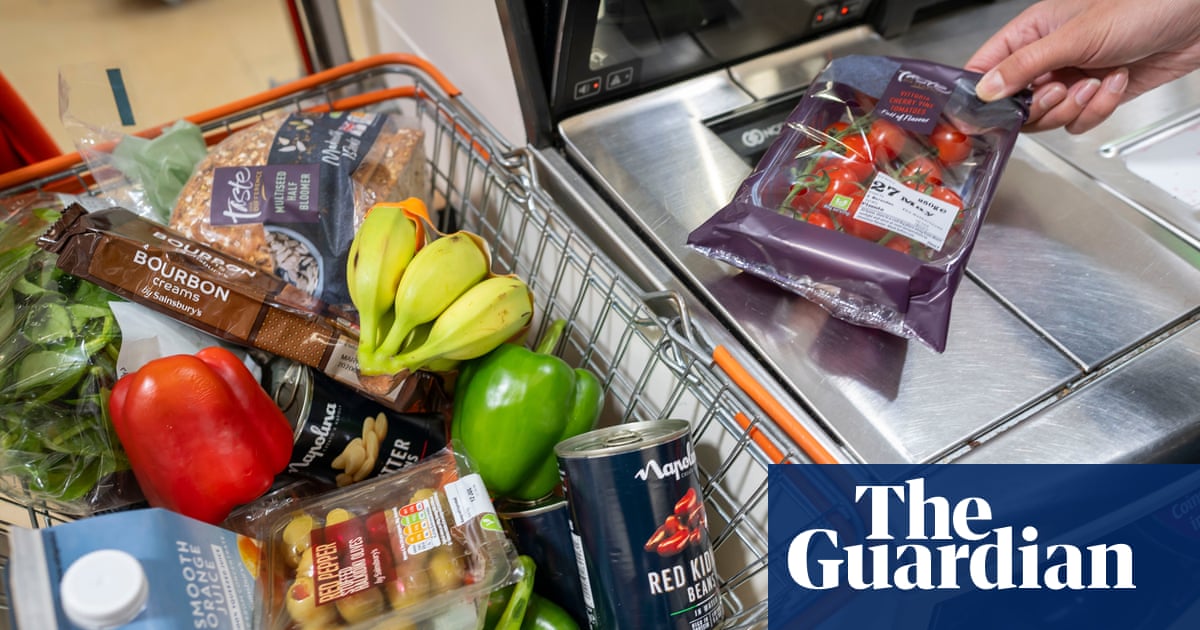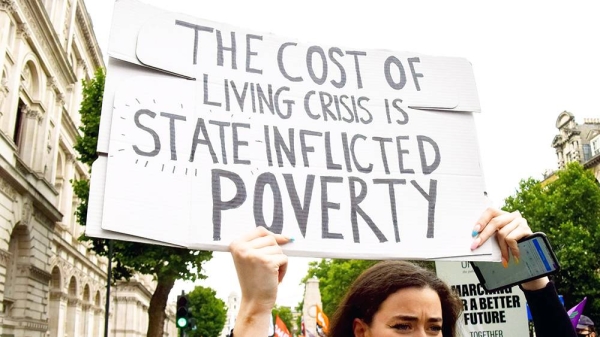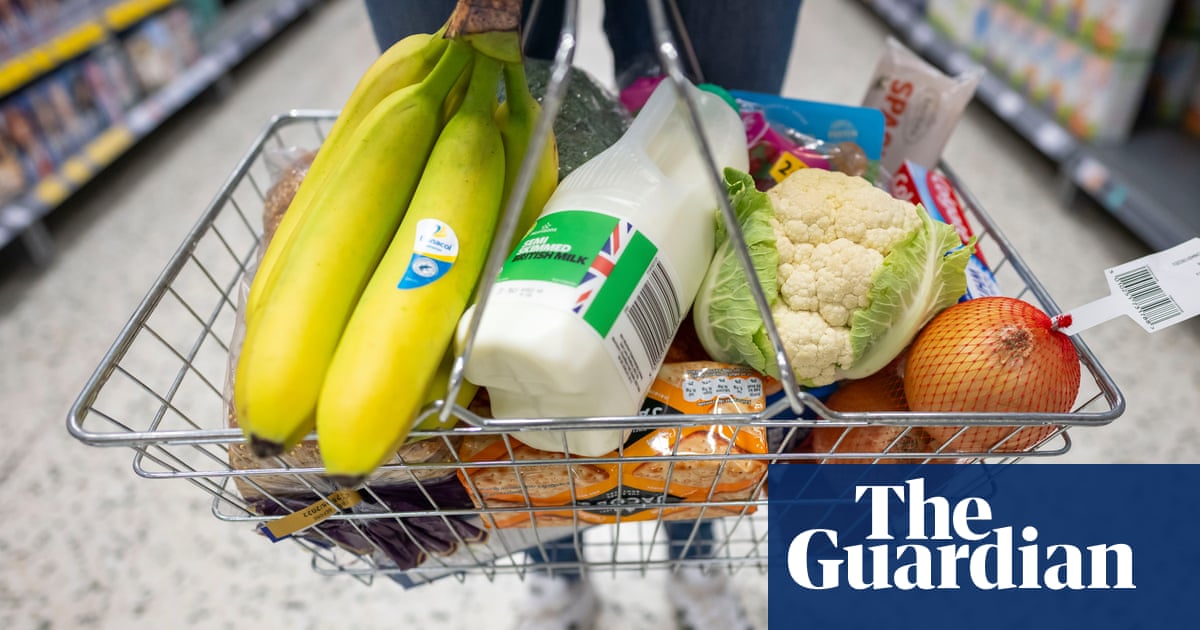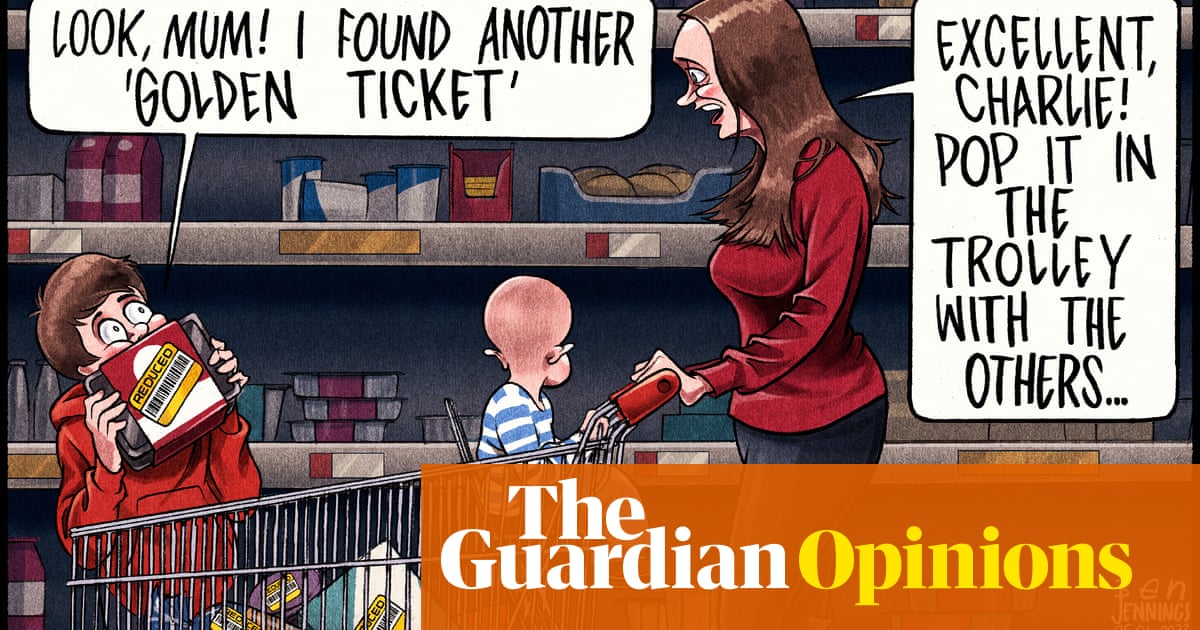
Inflation in the UK fell for a second month in December but remained at one of the highest levels in 40 years, as a near 17% increase in the price of food kept pressure on households amid the cost of living crisis.
The Office for National Statistics said the annual rate as measured by the consumer prices index dipped again last month to 10.5%, continuing a fall from 10.7% in November and its recent peak of 11.1% in October.
However, the pace at which food prices and non-alcoholic drinks increased was well above the overall rate, rising by 16.8% in the year to December – the biggest annual jump since 1977.
Basic essentials such as bread, milk and cheese soared, a development likely to put most pressure on lower-income households who spend a larger share of their income on food and energy than wealthier households.
Highlighting the rising cost of a weekly shop in the past year, the price of milk rose by almost 50%. Bread was up by a fifth, while store-cupboard staples such as sugar and pasta increased by more than a quarter.
It comes after Rishi Sunak promised to halve the rate of inflation this year as the cornerstone of his economic plans. However, experts said that the surge in food prices showed Britain’s cost of living crisis is far from over despite the drop in the overall inflation rate.
Jack Leslie, a senior economist at the Resolution Foundation, said: “Inflation remains particularly high for low-income families who are on the wrong side of a large cost-of-living gap due to the high cost of energy bills and food.”
The modest drop in December’s CPI was driven mainly by a significant fall in petrol and diesel prices and a decline in clothing prices growth compared with the same month in 2021. Petrol prices fell by 8p a litre and diesel by 16p over the course of last month.
However, overall inflation remained at the highest level since 1982. Rachel Reeves, the shadow chancelllor, said: “Each passing day brings more and more evidence that people are feeling worse off under the Tories.”
The chancellor, Jeremy Hunt, said the government planned to cut inflation further this year. “High inflation is a nightmare for family budgets, destroys business investment and leads to strike action, so however tough, we need to stick to our plan to bring it down.”
Economists had already forecast a sharp fall in the inflation rate this year, as the initial shock from the Covid pandemic and Russia’s war in Ukraine gradually works its way through the system. Inflation is measured as the annual change in price for a basket of goods and services, meaning that the burst in energy prices after Vladimir Putin’s invasion in February 2022 will fade in significance.
Bank of England officials, concerned about the dramatic rise in prices over the past year, are still expected to raise interest rates again at their meeting next month.
Some analysts said the central bank could increase rates by as much as 0.5% to make borrowing more expensive and increase unemployment to combat the demand for goods and services.
Others cautioned that inflation was governed by global energy prices, which had already begun to decline, and warned that the risk of recession would outweigh the need for further drastic action on borrowing costs.
Philip Shaw, a senior economist at Investec, said the persistently high rate of inflation meant the Bank’s monetary policy committee, which sets interest rates, “is nowhere near declaring victory over inflation”.
Shaw said the shortage of workers in many industries because of the large number of long Covid cases, a rush to early retirement among the over-55s and visa restrictions on workers from the EU meant the central bank would have little choice but to raise rates further.
Business surveys have shown wages rising strongly among low-income workers and at the top end of the income scale, while the wages of middle-income workers have stagnated.
Official labour market figures earlier this week showed City workers, accountants and lawyers secured the highest pay rises, while public sector workers fell into the lowest category.
Martin Beck, the chief economic adviser to the EY Item Club, said concerns that a tight labour market would create a wage-price spiral “should be starting to recede given that inflation has passed its peak and labour demand continues to soften”.
He said the Bank was “likely close to the end of its tightening cycle” and the base rate was only likely to rise to a maximum of 4% before policymakers began “mulling rate cuts by the end of 2023”.












